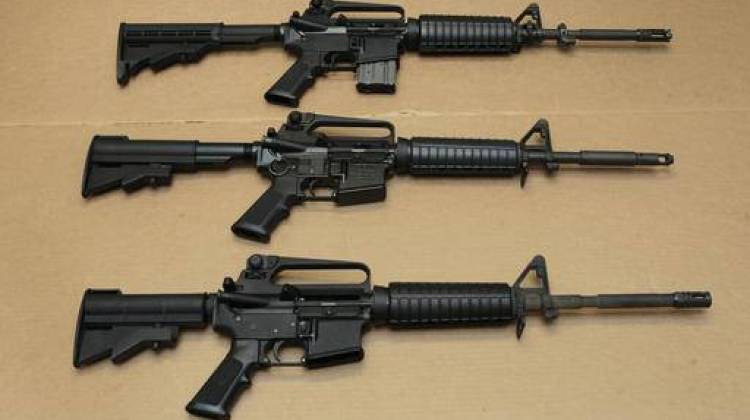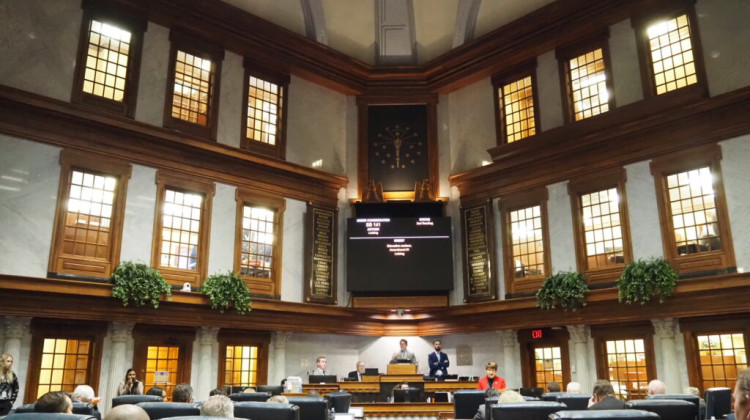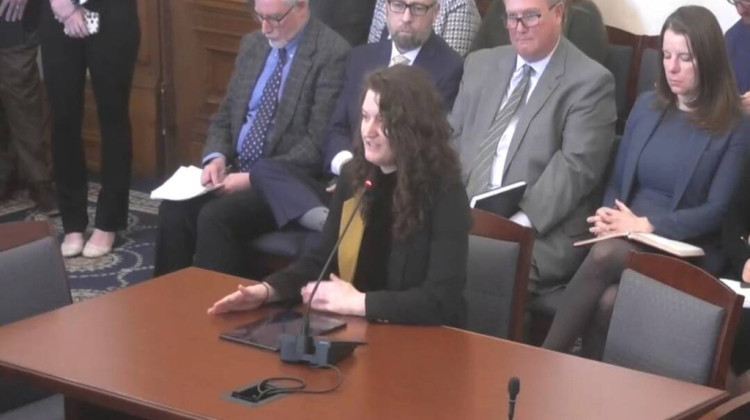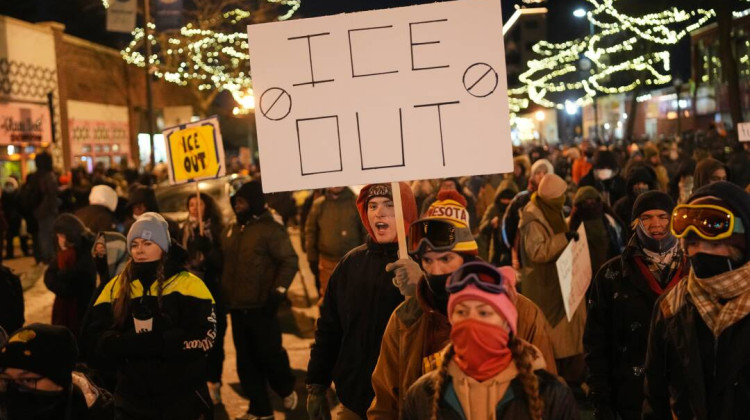Just over a week after the deadly nightclub rampage in Orlando, the Senate will take up four amendments Monday related to guns and terror — two from Democrats and two from Republicans.
Such a quick vote after a tragedy is not remarkable. Proposals were put forth — and rejected — right after the murders of children and teachers in Sandy Hook Elementary School 2 1/2 years ago. Bills very similar to those coming up for a vote now were actually taken up just one day after the mass killing in San Bernardino in December. They too failed. So there's little reason for optimism on the part of advocates of tougher gun laws this time around, when defeat is once again the most likely outcome for these latest proposals.
Still, for gun control advocates, it's important to force votes and to get members of Congress on the record.
A big reason there is a vote is because of a marathon 15-hour speech by Sen. Chris Murphy, D-Conn., and other Democrats last Wednesday. After that, the GOP leadership agreed to hold the votes.
Here are the measures up for consideration.
The Democratic proposals:
- Brought by Dianne Feinstein, D-Calif., it would give the Justice Department the power to stop anyone from purchasing a gun if that person has been on the federal terrorist watch lists sometime in the past five years. This measure would also make it easier for the government to halt a gun purchase, based on "reasonable belief" as opposed to "probable cause" that the individual will use the firearm to commit terrorism. The White House backs this measure.
- An amendment by Chris Murphy, D-Conn., would close the "gun show loophole" by requiring every gun purchaser to undergo a background check and to expand the background check database. It would also extend background checks to Internet sales.
The GOP proposals:
- This one from John Cornyn, R-Texas, would require that law enforcement be alerted when anyone on the terrorist watch list attempts to buy a weapon from a licensed dealer. If the buyer has been investigated for terrorism within the past five years, the attorney general could block a sale for up to three days while a court reviews the sale. The government would have to show probable cause that the person is a known or suspected terrorist.
- An amendment by Chuck Grassley, R-Iowa, would make it more difficult to add mentally ill people to the background check database, giving people suspected of serious mental illness a process to challenge that determination.
Sen. Susan Collins, R-Maine, one of the few GOP moderates in the Senate, told NPR's Weekend Edition Sunday that she wants to find a compromise that would lead to a different outcome this time. "What troubles me about the votes that we're going to have tomorrow is that they are repeats of the votes that we had after the San Bernardino shootings. And the result is going to be the same; neither is going to pass. I want to get something done, so I've been working with a group of Republicans and talking to many Democrats to put together a new proposal. "
Collins says her proposal would create a simple standard that she thinks could pass.
"It says that if you are too dangerous to board an airplane or if you are so dangerous that you're selected all the time for extra screening before you can board an airplane, you're too dangerous to buy a gun." She went on to explain: "it takes the federal government's no-fly list and what is called the selectee list, which requires extra screening, and says that those are the individuals against whom we have credible evidence and reason to be concerned, and we're not going to allow them to purchase firearms."
The National Rifle Association takes a dim view of all of this, not surprisingly. Its executive director, Wayne LaPierre, told CBS's Face the Nation on Sunday that the problem in Orlando and San Bernardino was terrorism, not guns. He said these measures are like "trying to stop a freight train with a piece of Kleenex."
9(MDEwMDc1MzM3MDEzNDczOTA0MDc1MzViMQ001))
 DONATE
DONATE








 Support WFYI. We can't do it without you.
Support WFYI. We can't do it without you.